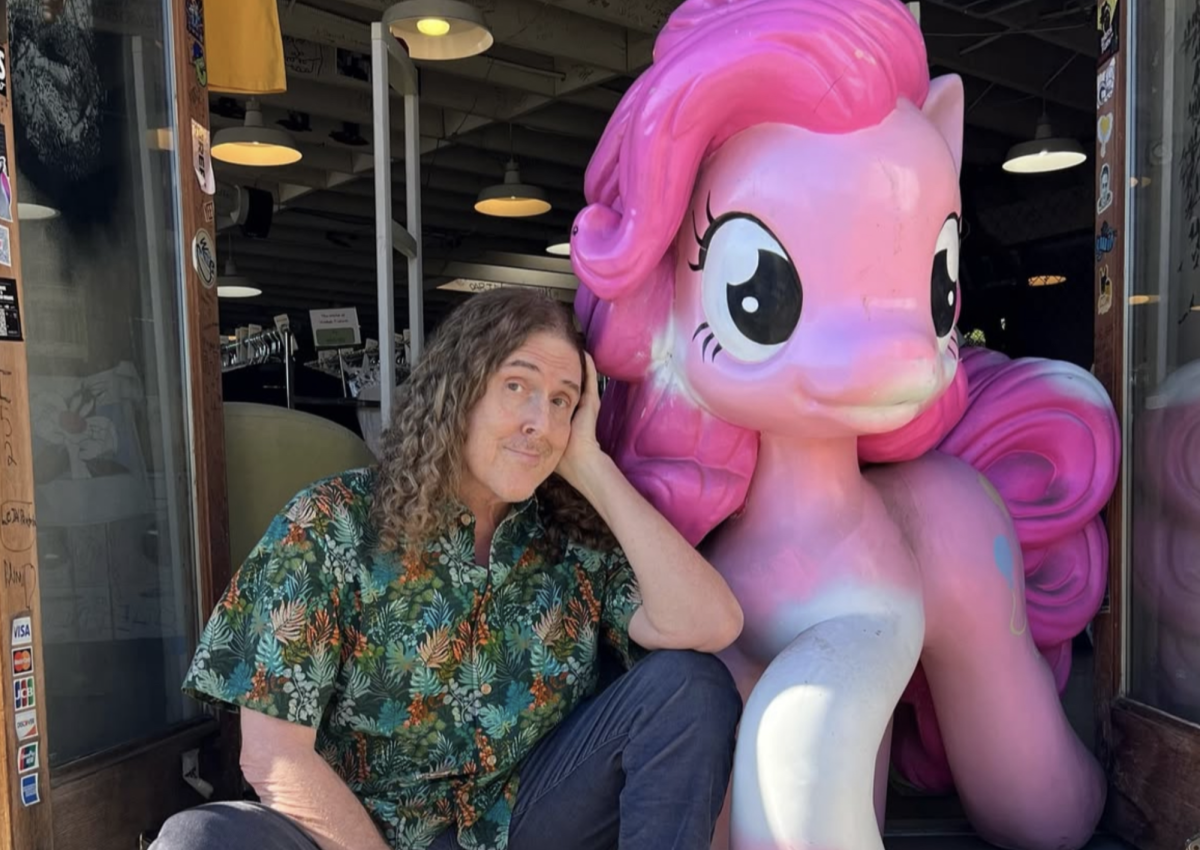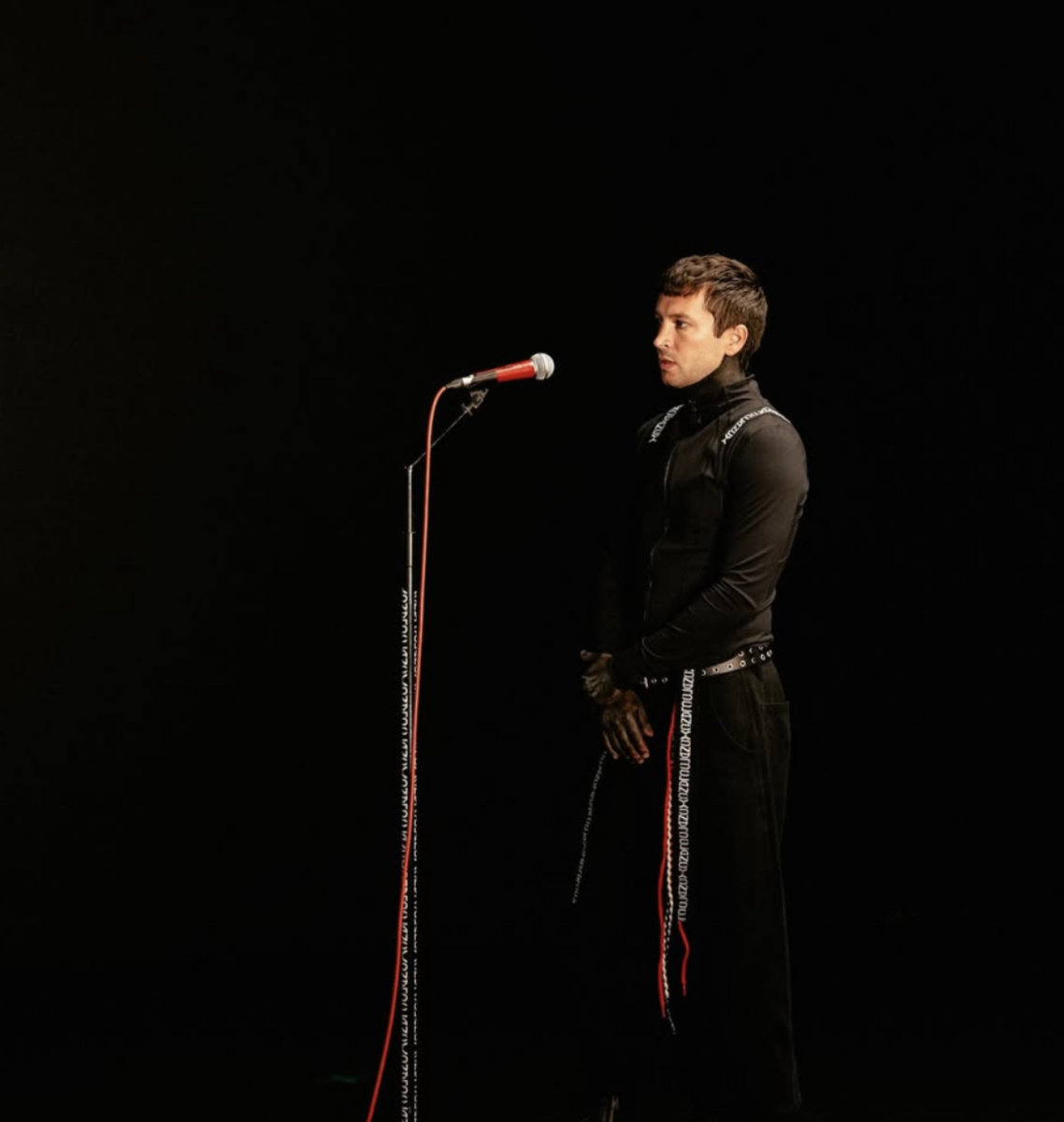
After lead singer Isaac Wood departed from English rock group Black Country, New Road in 2022, many wondered where the band would go musically. Their third studio album, “Forever Howlong,” embraces Wood’s departure and highlights the band’s feminine side through the combined vocals of Tyler Hyde, Georgia Ellery and May Kershaw.
With lyrics written by three of the band’s six members, the album risked a hypothetical lack of cohesion, but, in actuality, it triumphs as a collage of the three women’s styles. Their voices build off each other and each song’s narrative showcases the complexities of womanhood and relationships through the exploration of both medieval and contemporary settings.
The album demonstrates the band’s experimental style, seamlessly integrating soothing tenderness and explosive instrumentation while also venturing into some new sounds. Primary examples include the fifth track, “Two Horses,” which features a mandolin and a banjo, and the title track, reminiscent of an elementary school music class with its prominent use of recorders.
The eighth track, “For the Cold Country,” is by far my favorite. An emotional ballad about a lonely knight in a harsh medieval world, the song opens with hymnal vocals and Kershaw’s tender voice over muted strings. As the knight learns to accept himself, the song crescendos, taking on a brighter tone and going through a total sonic shift.
Ellery’s “Two Horses” is another fictional ballad, following a solo traveling woman and her two horses as she ventures through a hostile medieval landscape. The song’s acoustic sound and the folksy influence highlight the narrative’s adventurous themes. “Mary,” the only track featuring all three vocalists together, elicits a similar sylvan sentiment, though it is much more stripped back than other songs.
The darkest song is Hyde’s “Nancy Tries to Take the Night,” which strays from a medieval setting to Victorian-era London, as Nancy, of “Oliver Twist” fame, bears some of the most painful experiences of womanhood. As Nancy navigates her decision to abort her child, the song builds and hints at a grandiose ending, only for the melody to drop abruptly in a musical representation of Nancy’s tragedy.
While similar tragic themes anchor the rest of the album, a handful of songs differ drastically — the opening track and first pre-released single, “Besties,” appears upon first listen to be an upbeat tale of intimate female friendships. However, a second listen reveals that the song is lyrically deeper, conveying the suppression of true feelings and the need to comply with platonic expectations. Despite these underlying subtleties, the song’s groove differs starkly from the more emotional tracks, and I did not enjoy it as much. Ellery’s voice also does not shine as much there as it does in either “Two Horses” or the last track, “Goodbye (Don’t Tell Me),” another raw, emotional exploration of love and loneliness with an acoustic guitar.
Kershaw’s “The Big Spin,” the album’s second track, is another mostly upbeat tune, its groovy moments similar to those of “Besties,” though its calmer moments mirror the album’s quieter songs. The next track, “Socks,” follows the band’s traditional structure insofar as its buildup from slower and calmer croons to an explosive crescendo boasts an impressive arsenal of instruments behind Hyde’s singing about self-love and relationships while time passes.
“Salem Sisters” has a similar skeleton, though it is contained in a shorter track. An exploration of social anxiety through a metaphor of the Salem witch trials, the song adheres well thematically to the rest of the album. Its message is what ties together the otherwise stylistically disjointed songs — for example, Hyde’s “Happy Birthday,” a rockier, almost show tune-like song, picks up on the themes of robbed innocence and loneliness that she discusses in “Nancy Tries to Take the Night” and that Kershaw narrates in the title track.
In fact, Black Country, New Road’s trademark skill of weaving together coherent songs and albums from seemingly disjointed fragments is what renders this album such a success. A necessary step toward a new direction for the band after losing its lead singer, “Forever Howlong” reinvents the band without compromising the experimental and poignant intensity that defined their first two albums.
Their experimental prowess is evident as they venture into new territory, with the album’s beauty rooted in the conversations between the three singers. Instead of suffering from the loss of their lead singer, Black Country, New Road benefits from this pivot, highlighting the endless skill and creativity of the whole group.



















